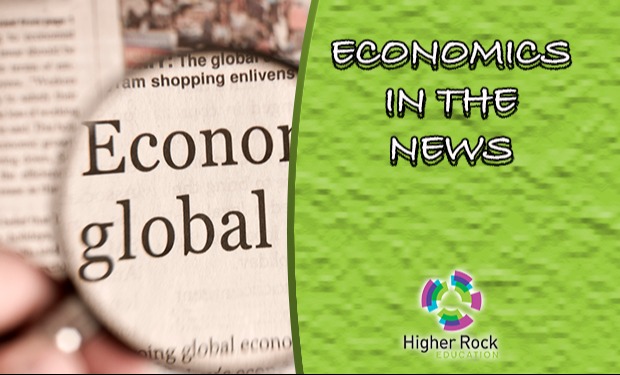
Economics impacts our lives every day. Below are some of the top storylines from this past week related to economics.
o Experts and data suggest that the economy in the United States is doing well. However, American voters disagreed, instead favoring President-elect Donald Trump over Democratic nominee Kamala Harris. Forty percent of voters said that the economy was their top issue, thinking about their grocery bills and being stretched to the brink financially. Many Americans are frustrated that they can’t afford a home or start a family, believing that the American dream is less achievable.
The disgruntled voters over the economy favored Trump over Harris. Trump’s message to center his campaign on cost of living appealed to working-class voters, who once believed that a college degree could be a ticket into the middle class but now question its value. [The Wall Street Journal]
o Australia’s government has proposed banning social media for children under the age of 16. It marks the latest effort by global political leaders to regulate children’s use of social media, amid concerns that it is having on their mental health.
Industry leaders, including Google, Meta Platforms, Snap, TikTok and X, have spoken out against the ban. Social media companies argue that scientific evidence hasn’t shown a link between social-media platforms and mental-health outcomes among young people. Some mental-health groups have also spoken out against a ban, worrying that it would deprive teenagers of social media’s positive effects, such as being a place for creativity. A ban would require all Australians to provide personal information, such as an ID or an image of their face to verify their age. [The Wall Street Journal]
o Some eager Buffalo Bills fans jumped at the opportunity to play in the role of helping fund the team’s new stadium. Erie County, New York issued $125 million in municipal bonds to cover half of the money it contributed to the Bills’ new stadium. Ninety-five orders by individual investors for $3.2 million came during the one-day pre-sale, while institutional investors bought the rest. The bonds had a maturity date of up to 25 years.
Some Erie County residents believed that the municipal bonds were a tax instead of an investment opportunity. Others did not understand why the interest rates on the bonds were not calculated. The county marketed the bonds at the same time that the Bills were selling personal seat licenses to ticket holders, as a requirement to buy season tickets at the new stadium. Licenses cost as much as $50,000 and many fans have balked at the financial burden. Many economists, as well as fans, oppose the use of public money to help finance stadiums as insufficient and unnecessary, while seeing the effort of Erie County as nothing more than a PR stunt. [The New York Times]
o Donald Trump’s election night victory plus a quarter-point interest rate cut from the Federal Reserve lifted major stock indexes to its best week in over a calendar year. The S&P 500 gained 4.7 percent, while the Russell 2000 climbed 8.5 percent. The post-election rally is typical in the aftermath of a presidential election.
Bank stocks led the way in the post-election rally, as investors anticipate more mergers and acquisitions under the incoming Trump administration. While the stock market embraced Trump’s win, the bond market was less enthusiastic. Economists and bond investors worry that Trump’s policies could reignite inflation. [The New York Times]
o Nvidia has surpassed Apple as the world’s most valuable company. Nvidia’s market capitalization climbed nearly three percent on Tuesday to close at $3.43 trillion, compared to Apple’s $3.4 trillion valuation.
Nvidia becomes the world’s most valuable company in the days immediately following the announcement of it being included as part of the Dow Jones Industrial Average. It took the place of Intel in the blue-chip index before the market opened on Friday. For 2024, Nvidia shares have nearly tripled, helping the company become the third company to reach the $3 trillion valuation, joining Apple and Microsoft. [The Washington Post]